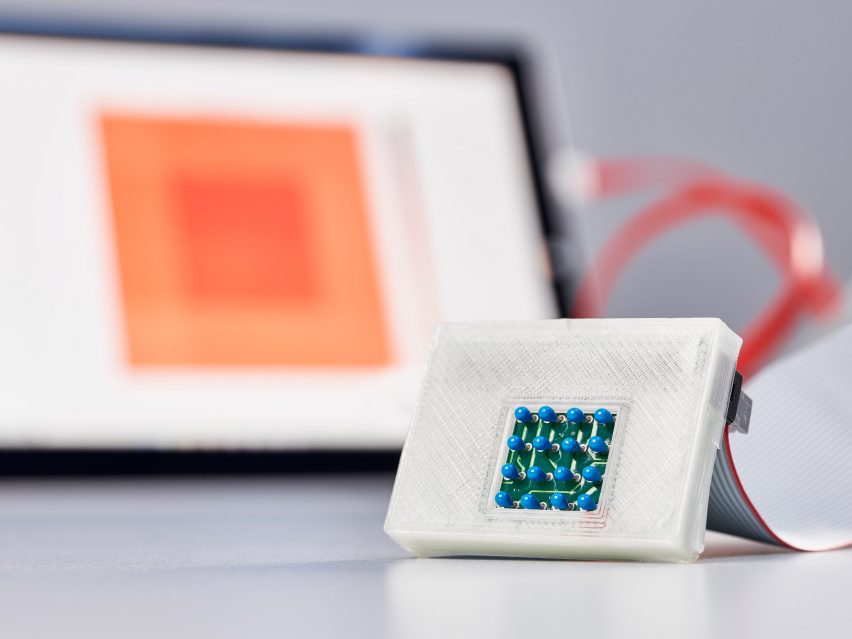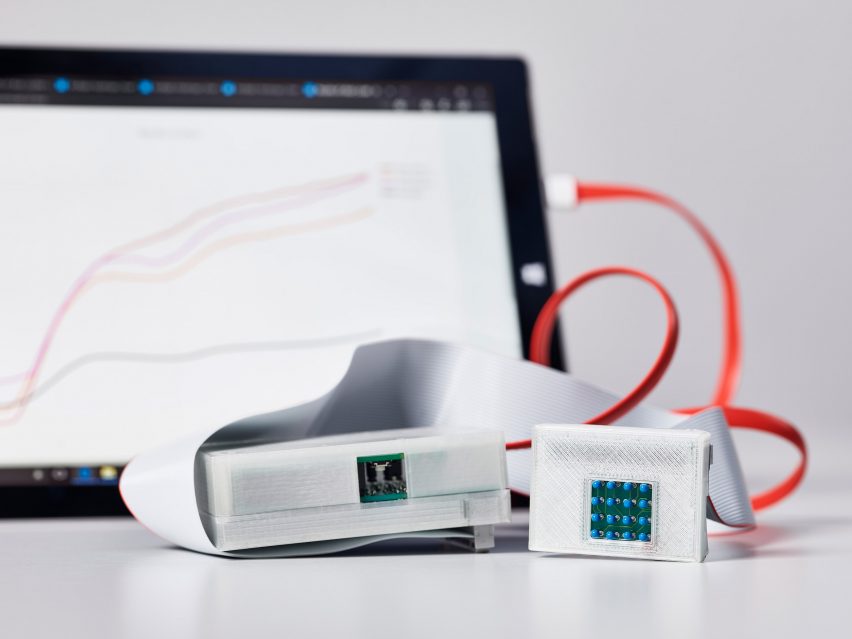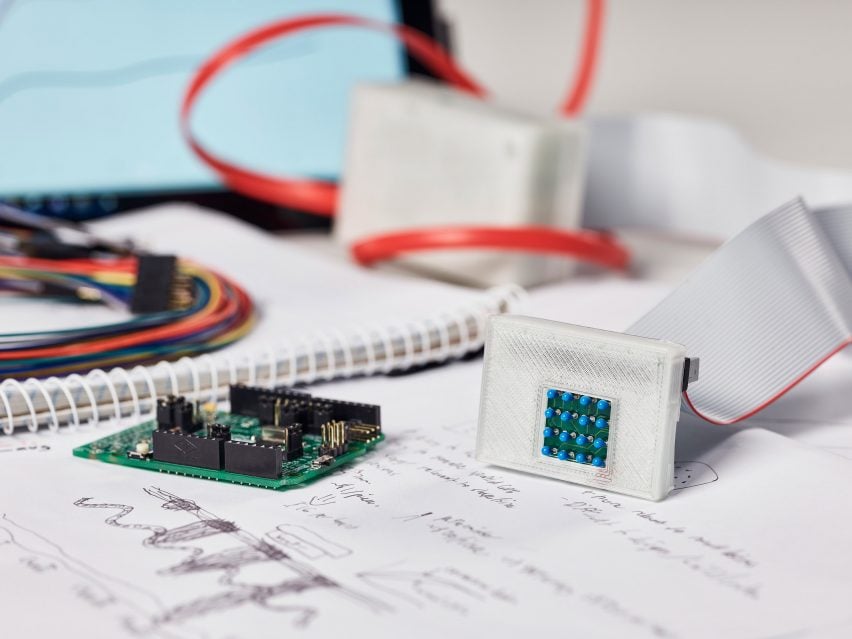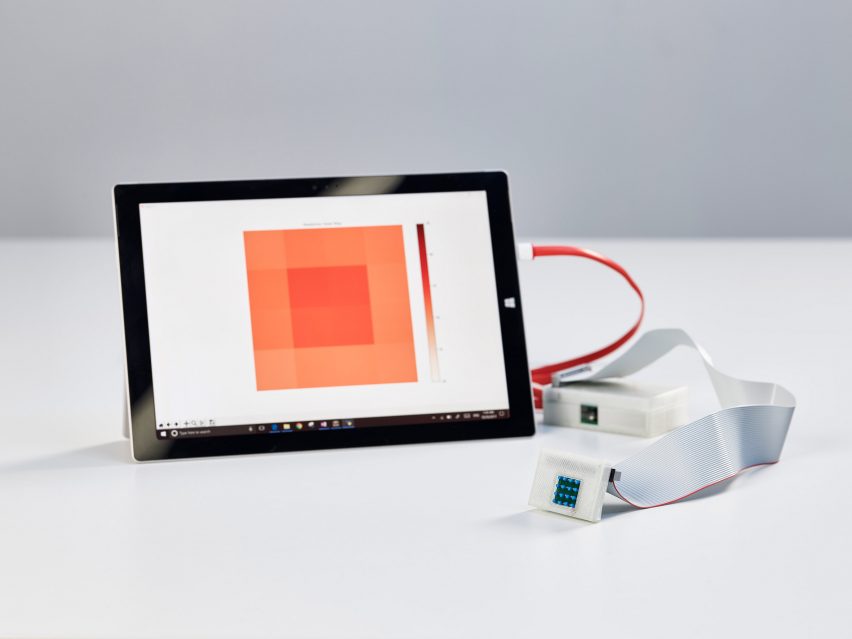Device that detects skin cancer wins James Dyson Award 2017
A group of Canadian engineering students have been named the winners of this year's James Dyson Award, for their device that detects skin cancer without the need for a biopsy.
The students from McMaster University in Canada developed the Skan device as a way to quickly and easily detect melanoma in its early stages.

According to the team, 37 people in the UK alone are diagnosed with melanoma every day.
"Early diagnostic methods rely heavily on visual inspections, which are inaccurate," they said. "More advanced methods are time consuming and expensive, adding avoidable strain to already over-burdened health services."
"In the UK one to 10 skin cancers are diagnosed in the late stage, however, it can take a number of weeks to see a specialist. Those who do not go through biopsy procedures run the risk of missed detection."
As an alternative to the usual method of taking a biopsy, the team proposed that diagnosis could be made using a non-invasive device that is placed on top of the skin.

Once fixed onto the skin, the device applies a cooling sensation to the area in question through a series of thermistors. It then records how fast the skin takes to return to its normal temperature.
"Cancerous cells have a higher metabolic rate than normal cells, and as such – they release more heat," said the team. "This means that after a thermal shock is applied, the cancerous tissue will regain heat more quickly than the non-cancerous tissue, indicating a strong likelihood of melanoma."
The results are fed back to a computer and displayed as a heat map and a time plot that shows how long different areas of the skin took to heat back up.

The combination of these results would show the presence, or lack of presence, of melanoma.
The team see this as being a more cost-effective alternative to current diagnostic methods, and claim that it will cost 80 per cent less than the non-invasive option of thermal imaging.
"By using widely available and inexpensive components, the Skan allows for melanoma skin cancer detection to be readily accessible to the many," said James Dyson. "It's a very clever device with the potential to save lives around the world."

As winners of the international James Dyson award, the Skan team will be given £30,000 to develop their idea and put it through clinical testing.
They hope that one day, in the near future, the device will become widely used in GP practices and hospitals worldwide.
James Dyson set up his eponymous award, which is open to university-level design students and recent graduates, in 2002. It runs in 22 countries, and the national winners compete for the international award.
Last year's international award was given to Isis Shiffer, for her recyclable, collapsible helmet that could be sold at bike-share stations.
Other winners include a fishing net that filters out young and endangered fish and an inflatable baby incubator.